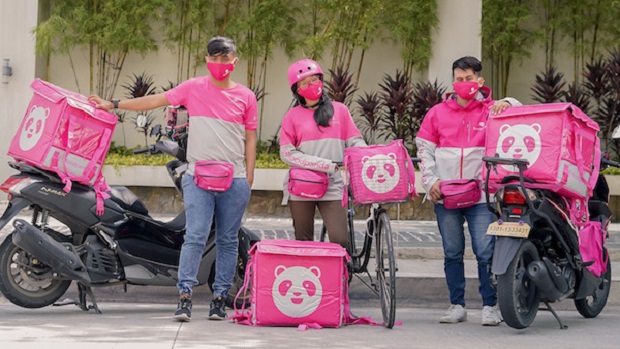As it celebrates its 8th anniversary, online delivery platform foodpanda is spearheading the growth of quick commerce, or q-commerce, which was triggered by the Covid-19 lockdowns and resulting inaccessibility to everyday necessities brought by it.
Q-commerce is a segment of the market focused on the fast delivery of goods – in some cases, as fast as 30 minutes or less.

With its wide network of retail partners and broad range of food, groceries and more, foodpanda is currently in the middle of the q-commerce revolution.
“As we celebrate our 8th year in the Philippines, we want to continue delivering change in the q-commerce industry through innovative and pioneering initiatives that will elevate the experience of our consumers and add value for our stakeholders,” said Daniel Marogy, managing director of foodpanda Philippines.
While delivery services have already been existing in the country for many years now, it was mostly only available through in-house delivery services from restaurants and fast-food chains.
When foodpanda acquired local delivery service City Delivery in 2014, the merger revolutionized the food delivery by offering the first app-based, one-stop shop platform to order from hundreds of restaurants nationwide.
“Through the years, we have been able to expand our business verticals beyond just food delivery – adding on groceries, daily essentials, dine-in, and pick-up, among others, to the roster of services that we provide. The move was sprung out of the desire to offer as many assortment of items and brands as possible, and at the same time, provide q-commerce based solutions that will deliver these goods quickly and efficiently,” Marogy said.
Aside from the innovations aimed directly at consumers, foodpanda said it is also striving to be a helping hand to ease the lives of their vendors. Marogy revealed that foodpanda was the first to start providing modern tech tools like tablets and data connection to their partner vendors to automate the order transmission which, back then, used a more laborious and manual route.
“That was a huge leap in the field of online food delivery; however, it did not stop us from continuously innovating our services to keep up with the evolving market,” Marogy explained.
“Our foodpanda shops and pandamart, for instance, have changed the way grocery shopping works by delivering groceries and daily essentials to Filipino households. pandamart, in particular, operates on an end-to-end process where everything is housed in one place – from warehouse to delivery, and we are the first and biggest player in the country to do so. Having control over the entire ecosystem has also allowed us to tap into smaller brands and stores so that they can gain more exposure in the app,” Marogy added.
He also highlighted some of the company’s other offers and services that are in response to the changing consumer habits and market behavior towards the way food is consumed.
“Our shared kitchens offer tremendous value and increased efficiency to the brands that utilize these shared spaces. Pick-up and dine-in, on the other hand, are some of the ways in which we are venturing into online-to-offline commerce, and in turn, help restaurants bring foot traffic back to their stores as Covid-19 restrictions continue to loosen,” the executive said.
Marogy said they have also put great focus on empowering micro, small and medium enterprises (MSMEs), especially those that were greatly affected by the economic constraints of the pandemic and other natural disasters.
On top of the training sessions to help increase their sales and gain more exposure in the app, insurance assistance was also recently provided through SeekCap to help foodpanda MSMEs in Visayas and Mindanao bounce back from the effects of Typhoon Odette.
Marogy said the strategy supporting MSMEs is two-pronged – to help consumers have access to wider options for goods while also helping smaller merchants gain their footing and navigate the market moving forward.
“For our foodpanda delivery partner fleet – or our Ka-Pandas as we call them – it was more than just side hustles, but a career and source of livelihood. Extending the job qualification to include bikers, scooter-riders, and walkers was also a conscious decision to be able to produce more opportunities for Filipino workers,” he said.
According to Marogy, the delivery partners’ protection and welfare are paramount. He the company recently sealed a partnership with PhilHealth for basic healthcare benefits and insurance protection in the event of unexpected accidents while on the road.
“Sustainability is at the heart of foodpanda’s advocacy to make a difference in the communities we serve and society at large. Going beyond just being a food delivery company and digital business, our CSR initiatives are focused on two areas: pandaShare which covers donation drives and outreach activities, and pandaBiz which provides livelihood opportunities to the underserved Filipino population,” he shared.
One of the company’s sustainability projects is the BuyAnihan Palengke program which seeks to help enterprising Filipinos become resellers of fresh produce sourced directly from farmers, who in turn are provided with better margins for their crops.
“As we step into our 8th year, our aim is to further digitize the food space in the Philippines to continuously meet the ever-changing demands of the digital world, local market, and our valued customers,” Marogy said.




